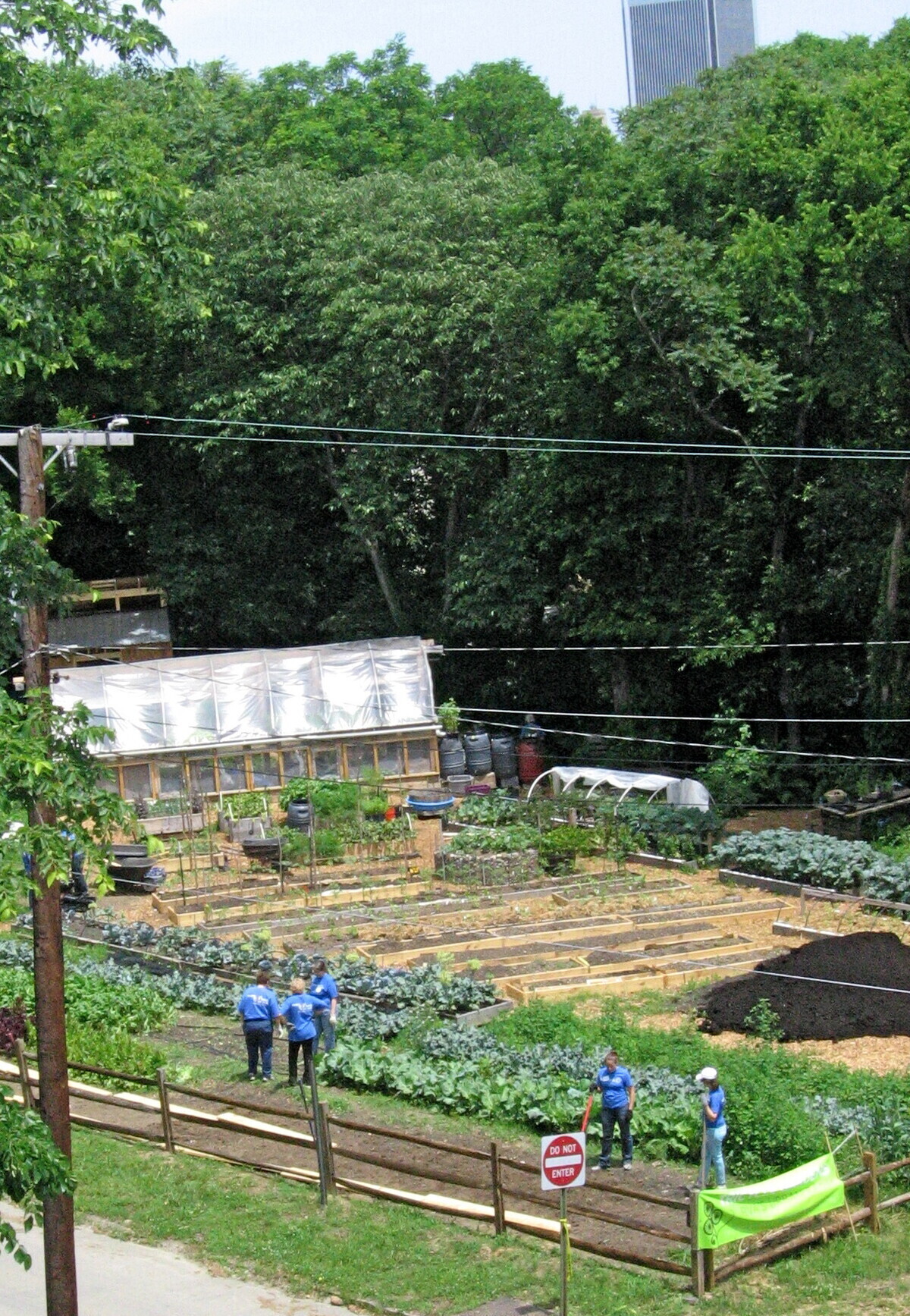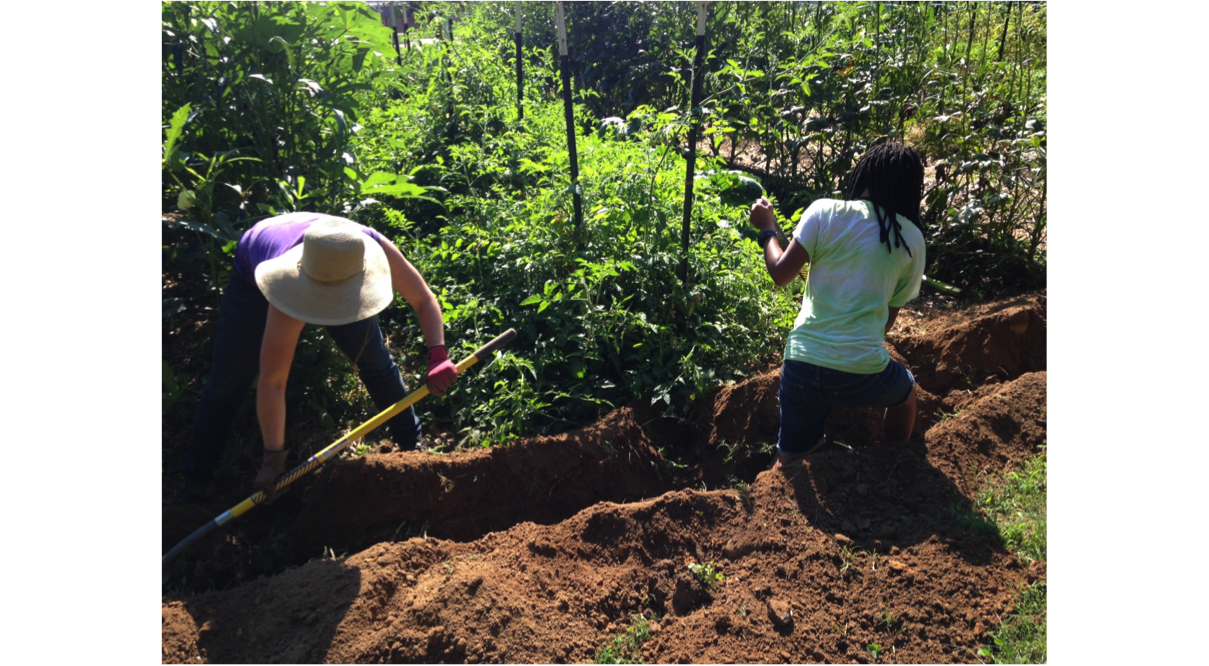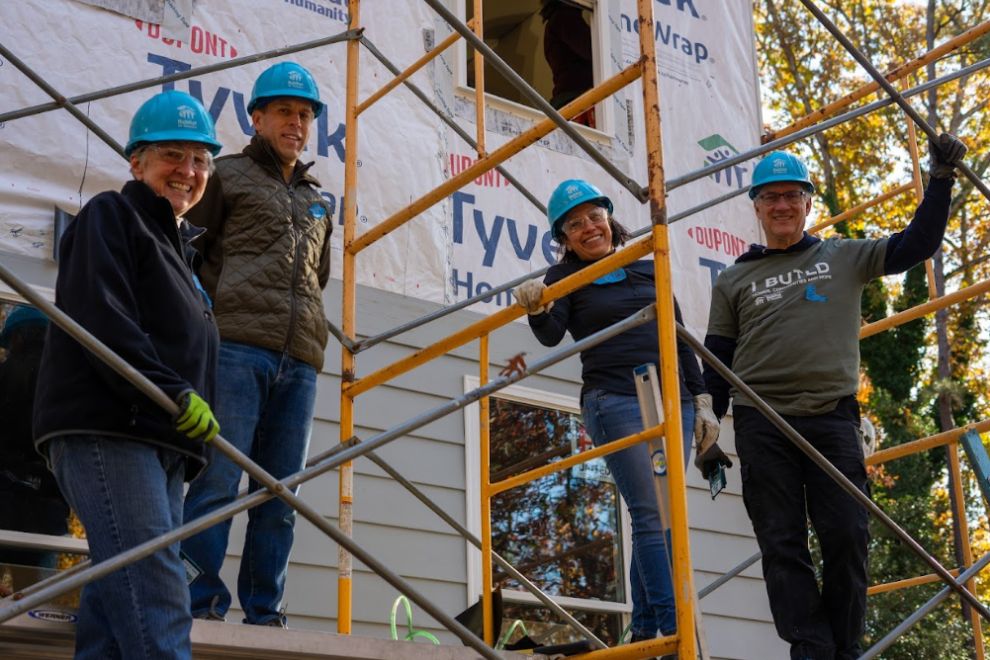Schedule a Way to Grow tour of Tricycle Gardens, Richmond’s first urban farm, for your students or community group. Email claire@tricyclegardens.org. Please visit Tricycle Gardens for more information.
 Studies have shown that for its size, Richmond City has more food deserts – areas without consistent access to fresh, healthy, and affordable food – than any other American city. Sally Schwitters, executive director of Tricycle Gardens, says that statistic is unacceptable.
Studies have shown that for its size, Richmond City has more food deserts – areas without consistent access to fresh, healthy, and affordable food – than any other American city. Sally Schwitters, executive director of Tricycle Gardens, says that statistic is unacceptable.
Tricycle Gardens is a Richmond-based nonprofit dedicated to growing healthy food, healthy communities, and a healthy local food system. Five years ago this month, Tricycle Gardens broke ground on RVA’s Urban Farm. The half-acre parcel in Manchester at the corner of Ninth and Bainbridge Streets is Richmond’s first urban, year-round, productive farm. In addition to providing healthy food access to surrounding neighborhoods, the farm serves as a living classroom where adults and youth can learn about the topics of farming, soil improvement, nutrition, and organic growing.
Partnering with local businesses and organizations, Tricycle Gardens helps bring fresh food and nutrition education to community members. The nonprofit develops programs to meet the needs of a diverse community, while its staff, along with dozens of dedicated volunteers and fellows work year-round to grow local food to sustain those programs.
The Healthy Corner Store Initiative is one such effort. Launched in 2013 to help eradicate Richmond’s food deserts, Schwitters says Tricycle Garden’s plan involves working with the community’s retailers. The program establishes partnerships with corner stores located in USDA-identified food deserts to offer fresh produce to families, along with the tools and training they need to incorporate healthy food into their lives. Corner stores offer food tastings and cooking demonstrations for customers in addition to tips on buying and preparing meals on a limited budget. Since introducing the program, Tricycle Gardens has partnered with seven corner stores around the city and plans to double the number of community partners by the end of 2015.
 Tricycle Gardens is also dedicated to making positive changes in the community through a number of educational efforts. Schwitters cites the Workforce Development Program as one example. The successful program gives fellows and volunteers hands-on experience with the business and practices of sustainable farming. During Way to Grow tours at the Manchester farm, staff members offer on-site tours about urban agriculture and sustainability to youth and adults. Through this program, Tricycle Gardens aims to inspire participants to share what they learn with their friends, families, and communities.
Tricycle Gardens is also dedicated to making positive changes in the community through a number of educational efforts. Schwitters cites the Workforce Development Program as one example. The successful program gives fellows and volunteers hands-on experience with the business and practices of sustainable farming. During Way to Grow tours at the Manchester farm, staff members offer on-site tours about urban agriculture and sustainability to youth and adults. Through this program, Tricycle Gardens aims to inspire participants to share what they learn with their friends, families, and communities.
The Learning Garden Program, in place at Peter Paul Community Center in Richmond’s East End and Fore Children at Independence Golf Club, also provides nutrition education, engaging Richmond youth through schools and community centers.
Tricycle Gardens also recently began a partnership with 31st Street Baptist Church in Church Hill. The church has an established garden, which will become an urban farm, and a USDA-certified kitchen serving community members five days a week through its Nutrition Center. “Through this partnership, Tricycle Gardens hopes to grow support for our current programs, to further support the programs currently established at the church, and to forge new relationships with the community,” Schwitters says. “We’re opening up new opportunities to bring healthy food and education to communities in Richmond with a goal of changing that unacceptable stat.”




